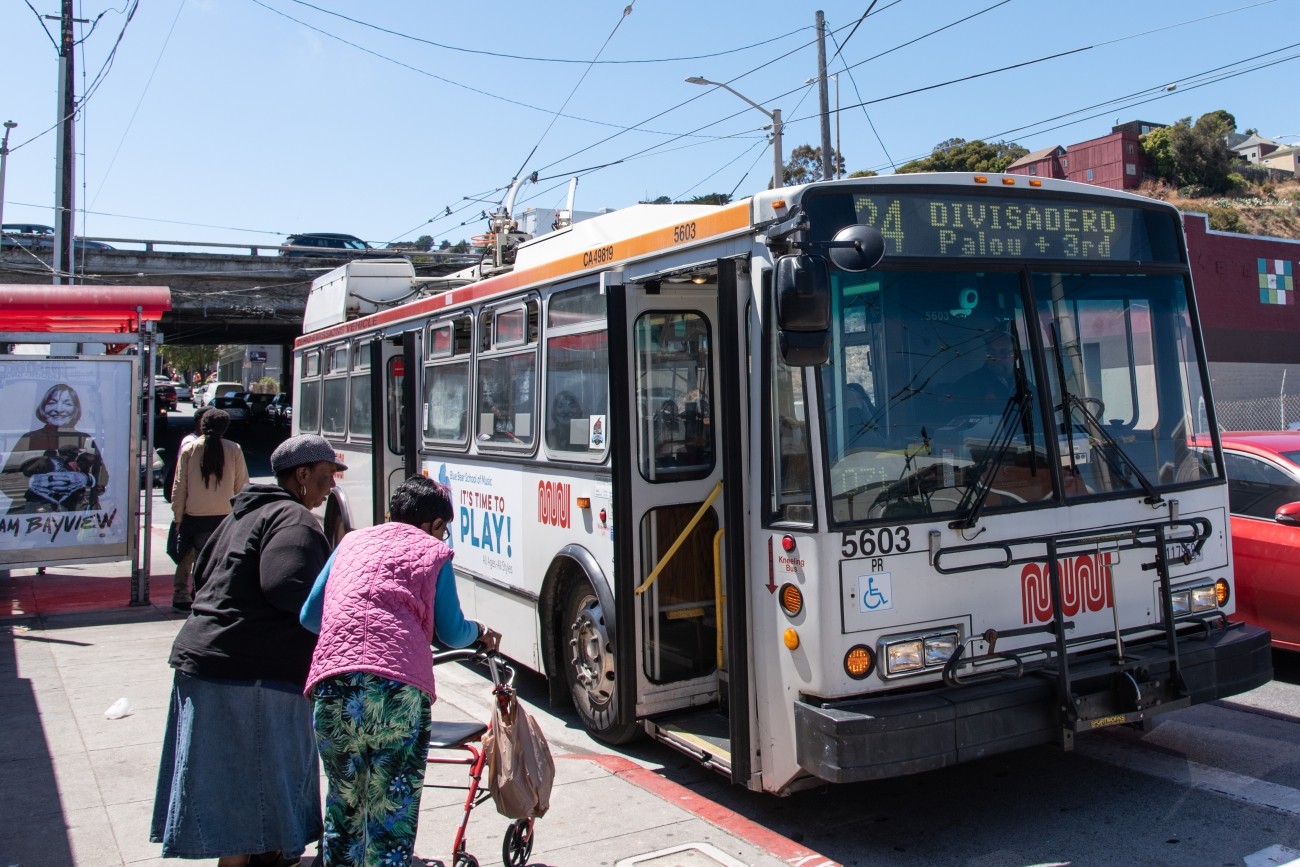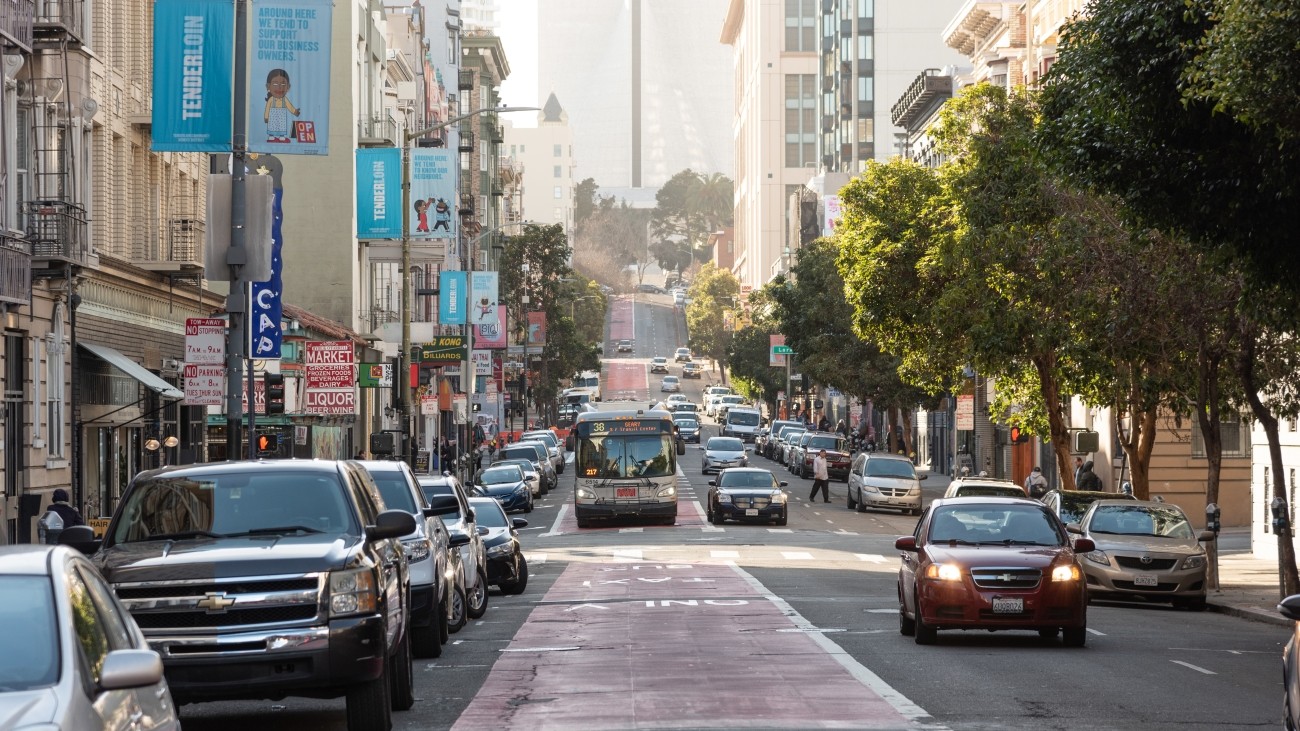
Photo by SFMTA Photography Department
San Francisco’s hilly terrains are home to various populations with diverse needs, and some areas have less access to transportation and resources than others. An equitable transportation system requires safe, accessible, and reliable options that meet the needs of all.
At the regional level, the Metropolitan Transportation Commission or MTC, and the Association of Bay Area Governments or ABAG, identified concentrations of historically underserved and disadvantaged populations. These regional designations, known as Equity Priority Communities, are used to direct funding and planning efforts to support communities that need more assistance.
MTC and ABAG identify Equity Priority Communities using data from the American Community Survey and continuously update the framework definition and data as a part of the updates to Plan Bay Area. The current Equity Priority Communities are identified through a combination of the following demographic factors:
- People of color
- Low-income households
- Limited English proficiency
- Zero-vehicle households
- Seniors 75 years and older
- People with disabilities
- Single-parent families
- Rent-burdened households
The Transportation Authority uses the MTC methodology at the local scale to identify San Francisco’s Equity Priority Communities. In 2017, our agency conducted a similar analysis at a finer level to more accurately capture San Francisco’s disadvantaged communities, especially when they are located in the same census tracts as more affluent neighborhoods. Learn more about the methodology and our supplemental Equity Priority Community boundaries in the April 28, 2021 Community Advisory Committee memo (PDF).
Our agency utilizes Equity Priority Community designations to prioritize and support transportation projects and funding efforts. We administer funding from the Prop AA vehicle registration fee, which gives priority to projects located in Equity Priority Communities or that can demonstrate benefits to disadvantaged populations. Read more about the Prop AA prioritization criteria (PDF), which our Board recently approved in anticipation of a “call for projects” next Spring. Some Prop AA-funded projects include the revitalized 24th Street BART plaza, the Mansell Corridor Improvements Project, and the Upper Haight Transit Improvement and Pedestrian Realm Project.
The Lifeline Transportation Program, which the Transportation Authority funds and administers for San Francisco, supports projects that focus on Equity Priority Communities, improve mobility and accessibility in low-income communities, or address gaps and barriers identified through community-based transportation plans. The program helps fund projects such as late-night service for the 48 Quintara/24th Street and 44 O’Shaughnessy routes and the BART and Muni elevator attendant program at the Civic Center and Powell Street stations.
Our Neighborhood Program utilizes funding from the half-cent sales tax for transportation to support projects that improve mobility, especially in Equity Priority Communities or other underserved neighborhoods and vulnerable populations. Some projects funded through the Neighborhood Program include Vision Zero safety efforts such as the Lake Merced Bikeway Feasibility Study and Quick-Builds, Western Addition Community-Based Transportation Plan, and Tenderloin Traffic Safety Improvements.
Equity Priority Communities were previously called “Communities of Concern.” The MTC and ABAG updated the nomenclature in May 2021 as a response to public feedback desiring terminology that reflects progressive, action-oriented efforts in addressing transportation and resource disparities. The Transportation Authority followed suit in San Francisco.
Learn about some of the projects the Transportation Authority has helped deliver in Equity Priority Communities:
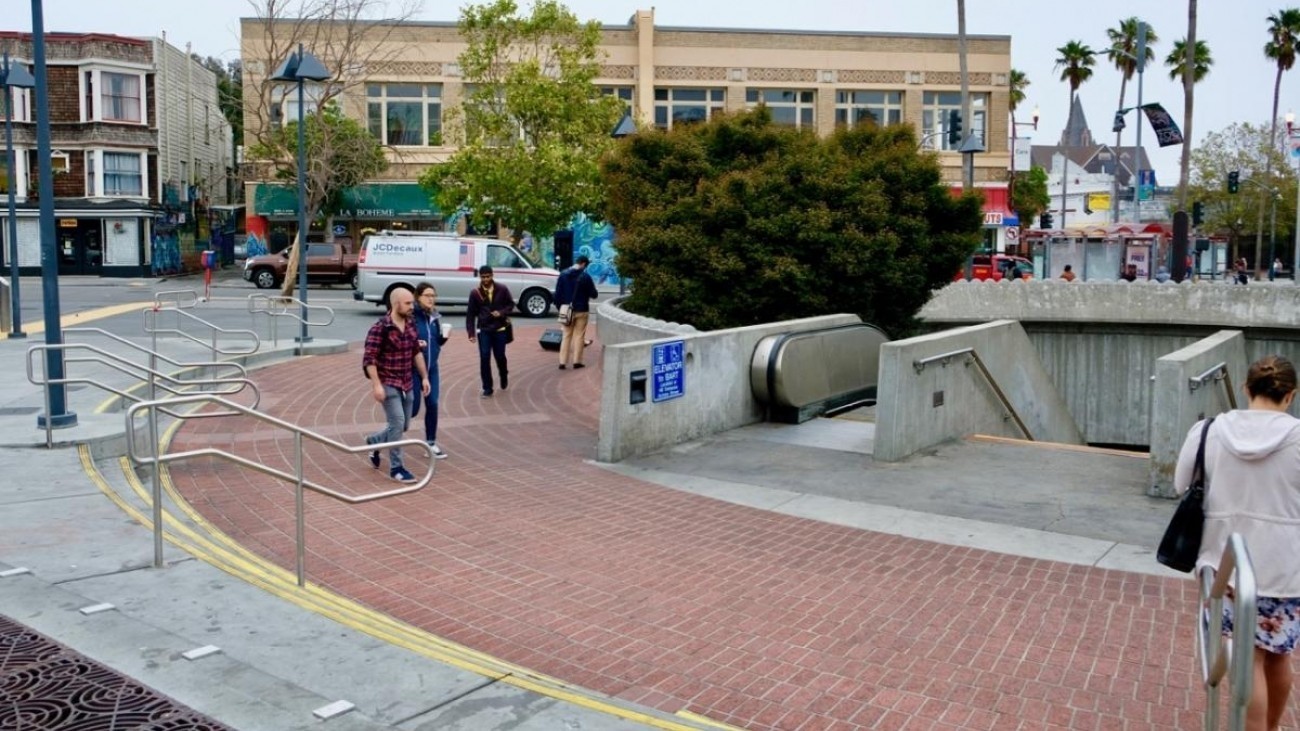
The 24th Street BART Southwest Plaza and Pedestrian Improvements project, supported by over $700,000 in Prop AA funding, redesigned the area to make it safer, easier, and more pleasant for transit users to walk to BART and Muni service.
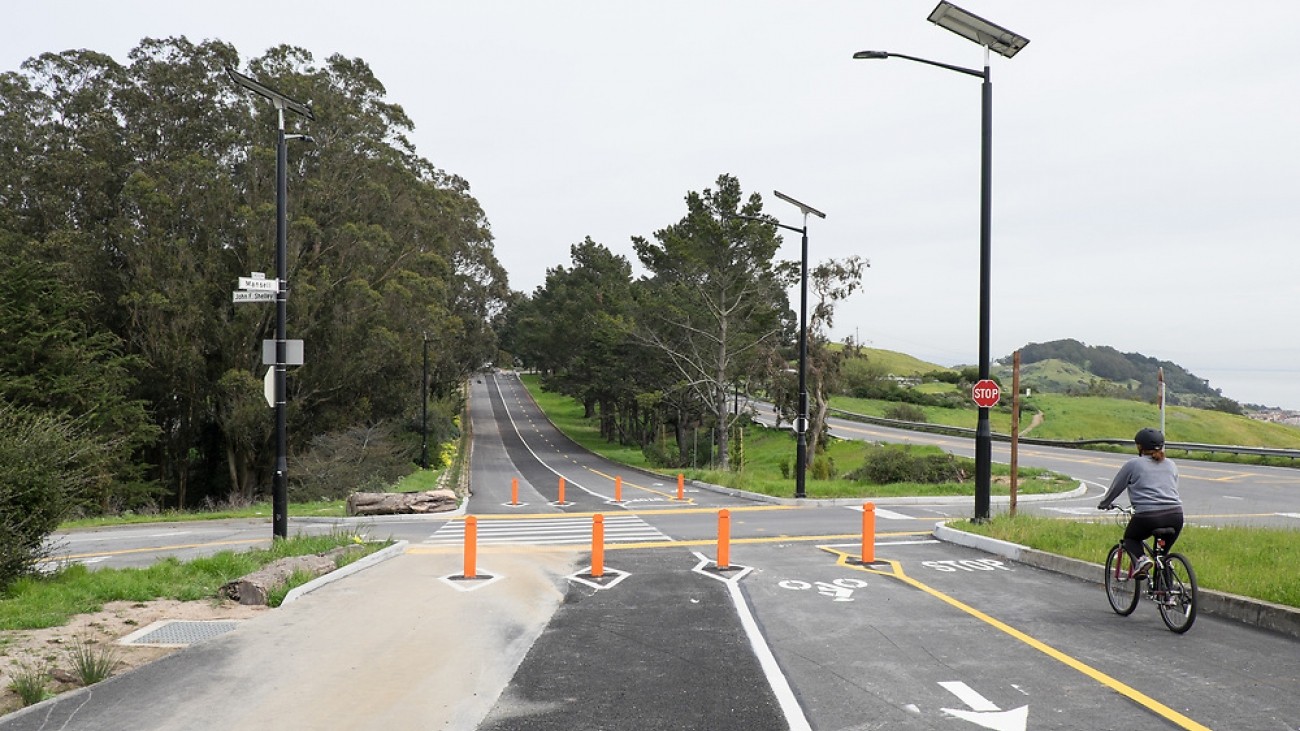
The Mansell Street Improvements Project, supported by nearly $3 million in Prop AA funding, converted two busy lanes of vehicle traffic to permanent pedestrian and bicycle-only pathways in McLaren Park and included additional traffic calming measures.
Photo: SFMTA Photography Department
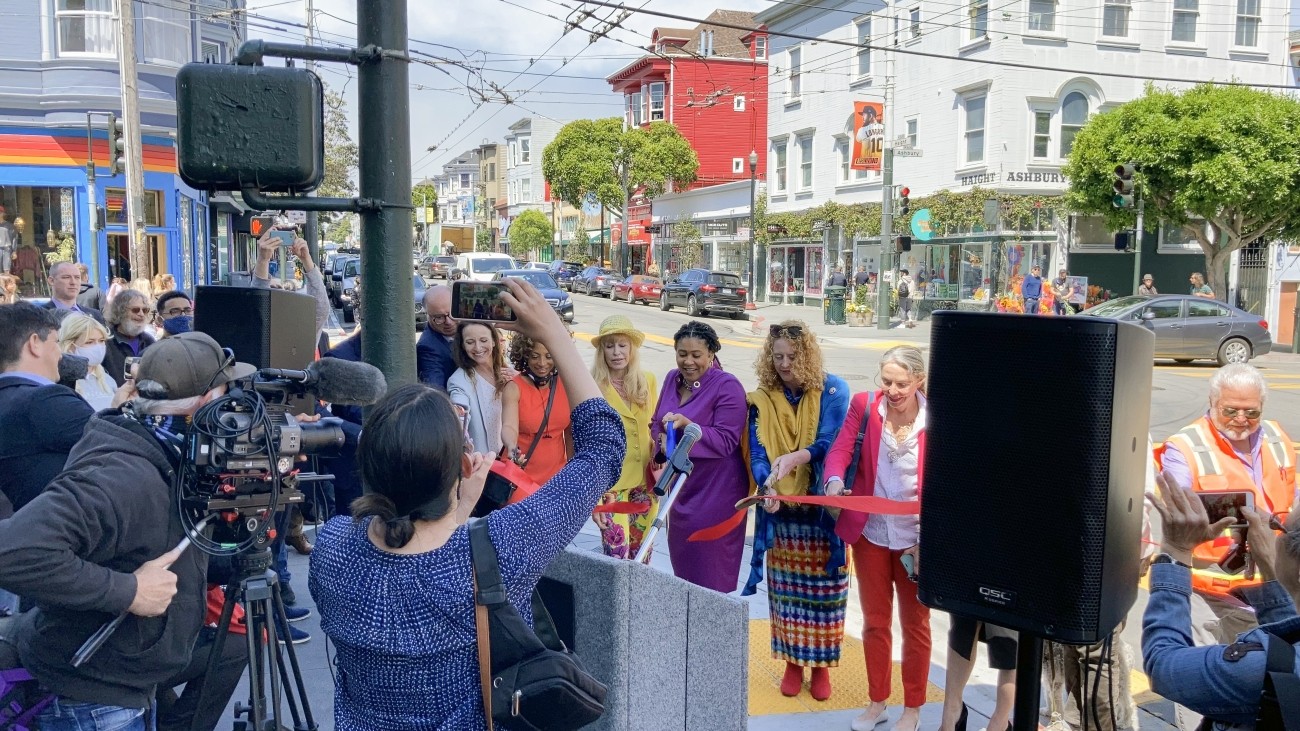
The Upper Haight Transit Improvement and Pedestrian Realm Project, supported by both Prop AA and Prop K funding, resurfaced Haight Street, installed new pedestrian lighting and sidewalk extensions, revised crosswalk signals, and more.
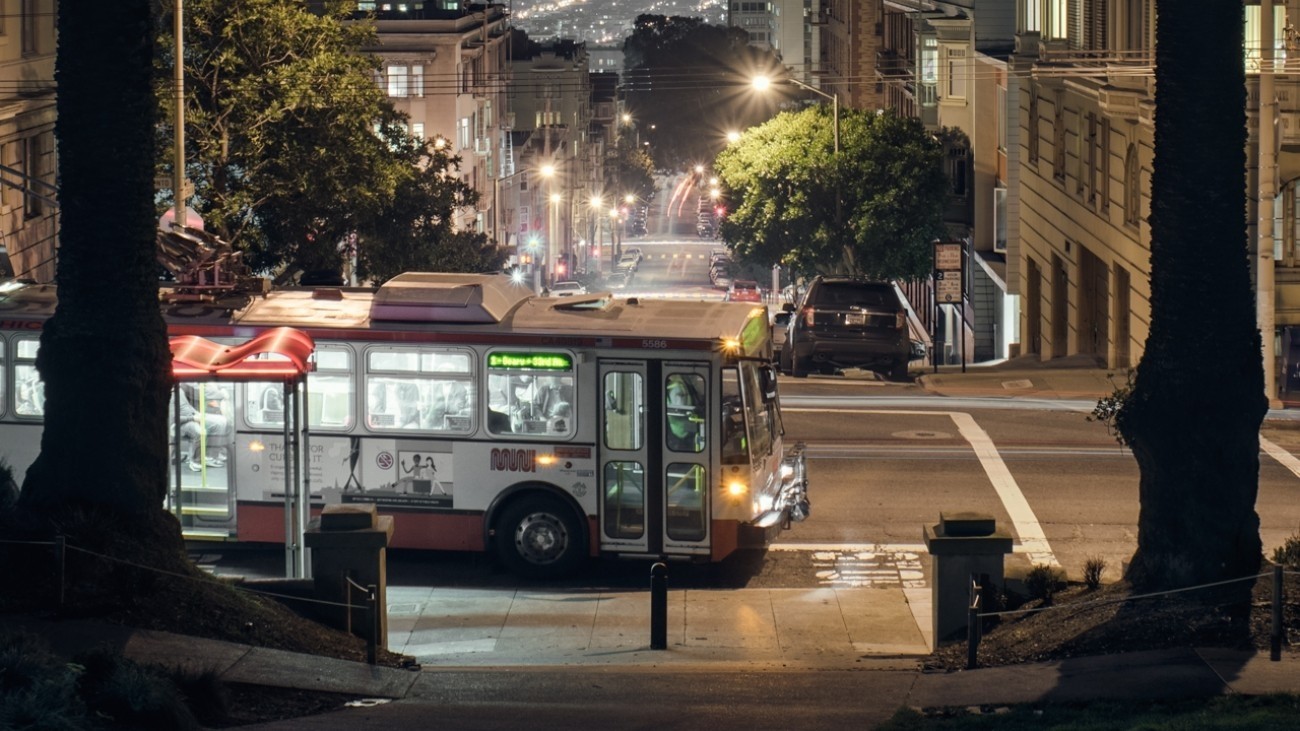
The Late Night Transit Service to Communities in Need project, funded by nearly $9 million in Lifeline Transportation Program grants, continued owl service on key segments of the 48 Quintara/24th Street and 44 O’Shaughnessy.
Photo: freeside, flickr
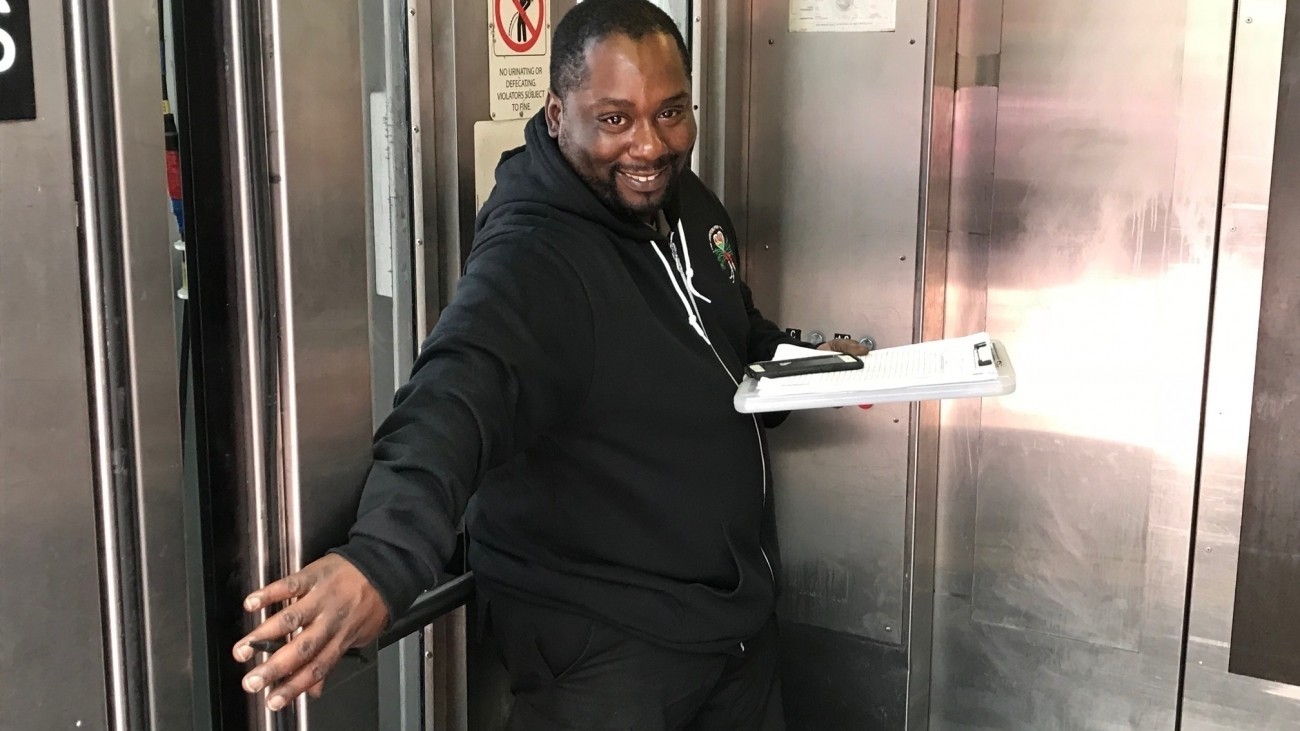
The BART elevator attendant program, supported by the Lifeline Transportation Program, places attendants to oversee elevator operations and cleanliness and assist BART and SFMTA customers.
Photo: BART
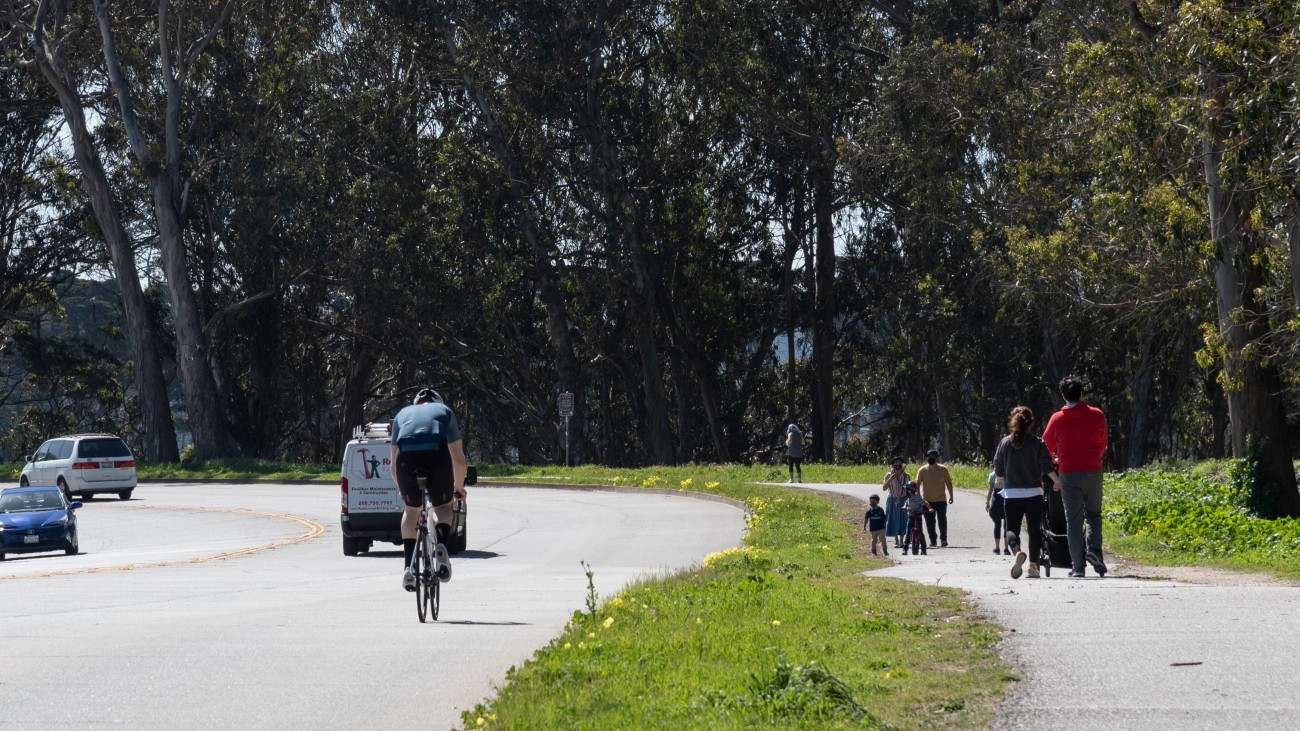
The Lake Merced Bikeway Feasibility Study, supported by Neighborhood Program funding, recommended potential quick-build designs, including protected bikeways, transition zones for bicyclists, and more. Prop K funds will be used to implement priority recommendations.
Photo: SFMTA Photography Department
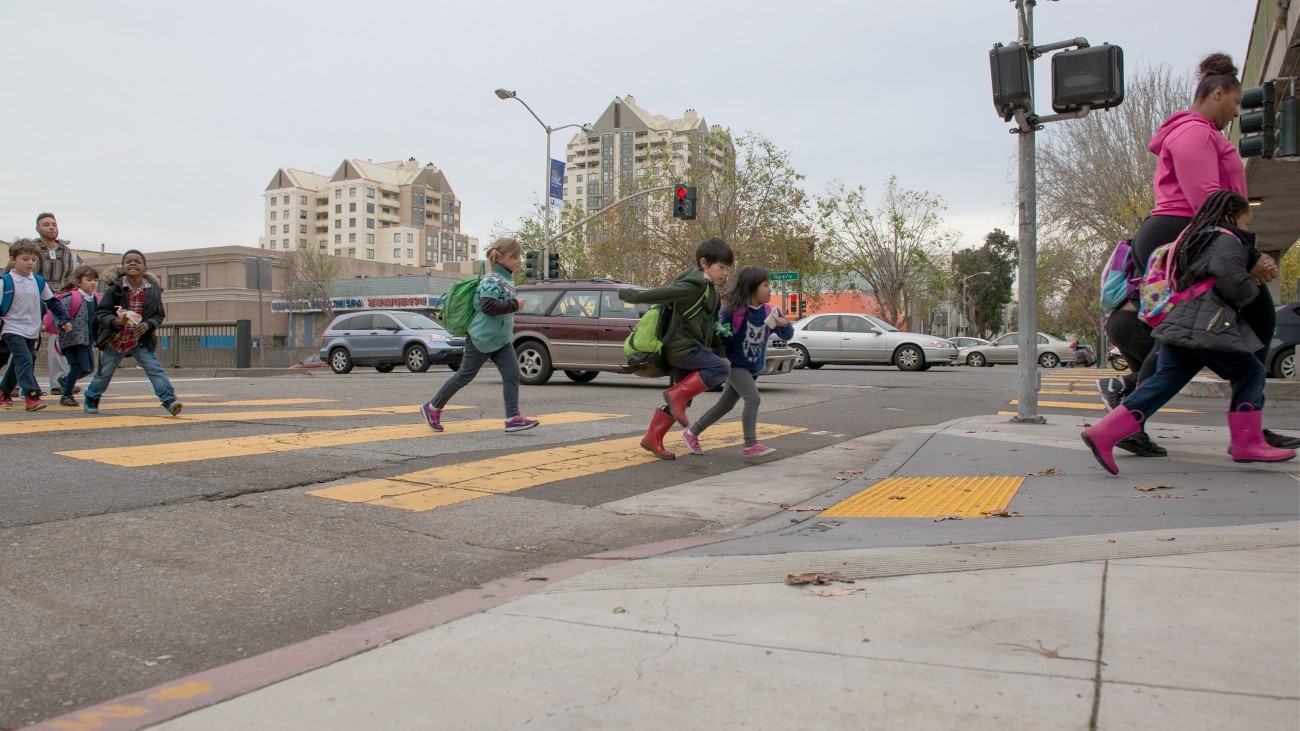
The Lake Merced Bikeway Feasibility Study, supported by Neighborhood Program funding, recommended potential quick-build designs, including protected bikeways, transition zones for bicyclists, and more. Prop K funds will be used to implement priority recommendations.
Photo: SFMTA Photography Department
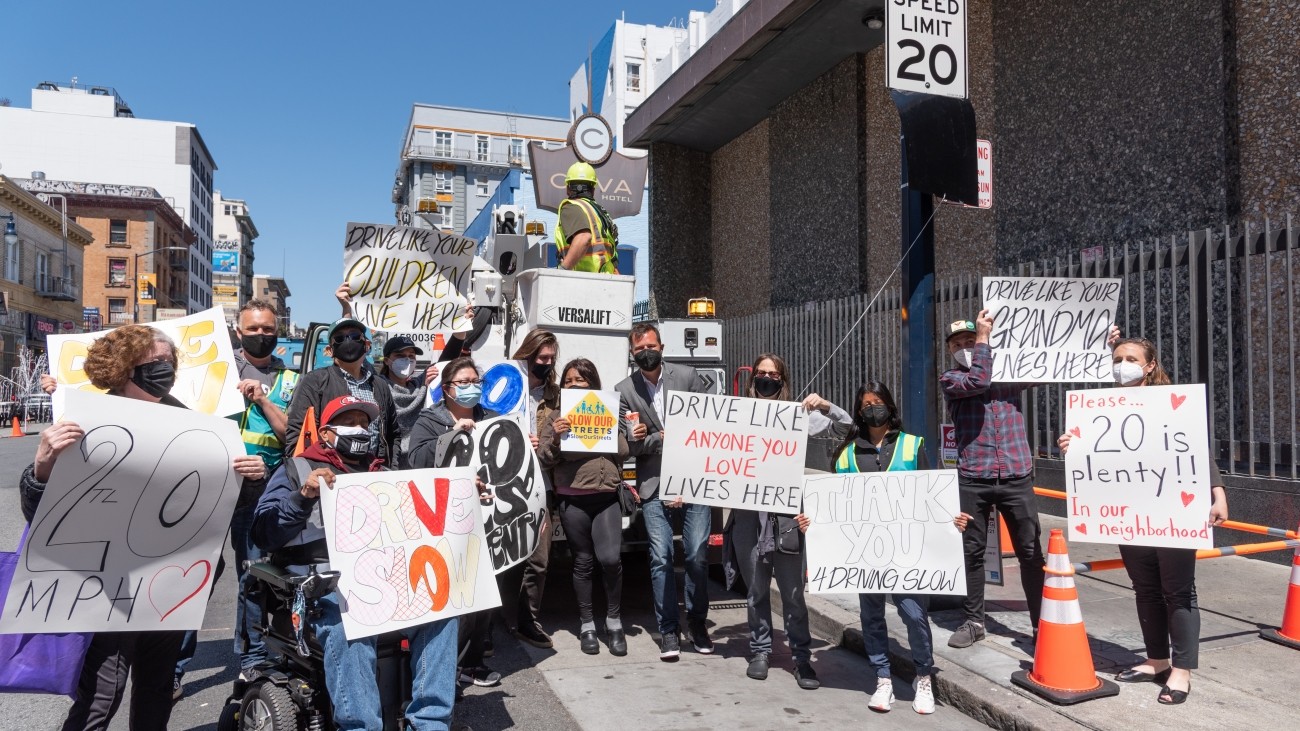
The Tenderloin Traffic Safety Improvements Project, funded by the Neighborhood Program, implemented area-wide speed limit reductions and will install 'no-turn on red' signs at 54 intersections to improve traffic and pedestrian safety.
Photo: SFMTA Photography Department
Resources
Visit our Equity Priority Communities webpage
Check out our dynamic map of San Francisco's Equity Priority Communities
Visit MyStreet to see projects we’ve funded
SFCTA presentation on updates to SF’s Communities of Concern April 28, 2021 (PDF)
SFCTA presentation on Lifeline Transportation Program recommendations April 9, 2019 (PDF)
MTC presentation on updated nomenclature May 14, 2021 (PDF)
